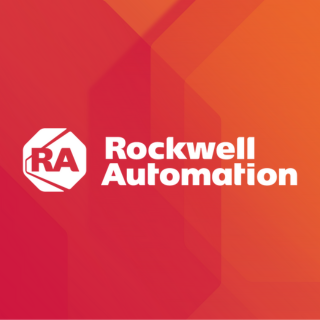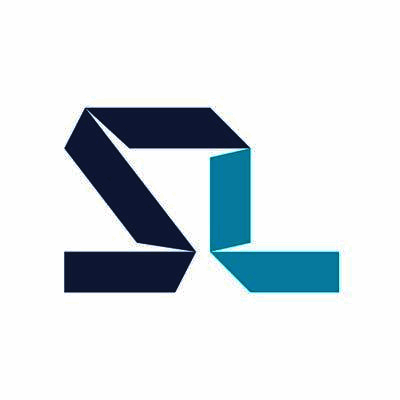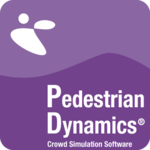Description

Arena Simulation

WITNESS
Comprehensive Overview: Arena Simulation vs WITNESS
Arena Simulation and WITNESS are both prominent discrete-event simulation software tools used for modeling, analyzing, and optimizing processes across various industries. Here's an overview of each product, covering their primary functions, target markets, market share, user base, and key differentiating features:
Arena Simulation
a) Primary Functions and Target Markets:
- Primary Functions: Arena Simulation is used for building simulation models that help in visualizing, analyzing, and optimizing business processes. It provides tools for process analysis, what-if scenario testing, and operational optimization. Key functionalities include modeling workflows, resource scheduling, bottleneck identification, and predictive analytics.
- Target Markets: Arena is primarily applied in manufacturing, supply chain, logistics, healthcare, and service systems. Its versatility makes it suitable for any industry that requires the simulation of complex processes to improve efficiency.
b) Market Share and User Base:
- Arena is one of the most widely used simulation tools globally, particularly dominant in academic settings and among large corporations. It has a substantial market share in manufacturing and logistics sectors due to its comprehensive features and historical presence.
- Its user base includes operations researchers, process engineers, and academic institutions, often relying on its robust modeling capabilities.
c) Key Differentiators:
- Arena is known for its user-friendly interface and drag-and-drop modeling environment, which simplifies complex simulation modeling.
- The software offers extensive support and integration with other Rockwell Automation products, as well as compatibility with diverse datasets.
- Arena's simulation language, based on SIMAN, provides powerful modeling capabilities that attract advanced users who need deep customization.
WITNESS
a) Primary Functions and Target Markets:
- Primary Functions: WITNESS by Lanner is designed to model, simulate, and optimize dynamic business processes. It offers predictive and prescriptive analytics capabilities, focusing on improving process efficiency, resource utilization, and risk management.
- Target Markets: WITNESS is used across various sectors, including manufacturing, automotive, aerospace, healthcare, and defense. It’s particularly favored in industries requiring digital twins and IoT integration for smart manufacturing and Industry 4.0 applications.
b) Market Share and User Base:
- While WITNESS is a strong competitor in the simulation software market, its market share is more niche compared to Arena, frequently prominent in sophisticated industrial applications and companies investing in digital transformation.
- Its user base includes industrial engineers, business analysts, and companies seeking to leverage digital twin technology for enhanced decision-making.
c) Key Differentiators:
- WITNESS stands out with its advanced 3D visualization and digital twin capabilities, enabling users to create detailed and interactive models.
- It emphasizes connectivity and integration with IoT platforms and real-time data streams, making it well-suited for smart factory applications.
- WITNESS offers a strong suite of tools for integrating simulation results with business intelligence systems, enabling comprehensive data analysis and decision support.
Comparison and Summary
- Overall Market Share: Arena tends to have a larger market share due to its extensive use in academia and established presence in traditional industries. WITNESS holds a firm position in high-tech industries, where digital twins and IoT are crucial.
- User Base: Arena attracts a broad range of users due to its ease of use and versatile applications, while WITNESS appeals to organizations investing in advanced manufacturing technologies and digital innovation.
- Key Differentiation: Arena offers a more accessible interface and strong integration with existing software ecosystems, whereas WITNESS excels in 3D visualization, IoT integration, and applications requiring digital twin frameworks.
In conclusion, organizations often choose between Arena and WITNESS based on their specific needs and industry focus, with Arena being preferred for ease of use and diverse application, and WITNESS for digital transformation and real-time integration capabilities.
Contact Info

Year founded :
Not Available
+1 412-375-4700
Not Available
United States
Not Available

Year founded :
Not Available
Not Available
Not Available
United Kingdom
Not Available
Feature Similarity Breakdown: Arena Simulation, WITNESS
Certainly! Both Arena Simulation and WITNESS are popular simulation software tools used for modeling and analyzing business processes, helping organizations optimize operations and make data-driven decisions. Below is a breakdown of their features:
a) Core Features Common to Both Arena Simulation and WITNESS
-
Discrete Event Simulation: Both tools support discrete event simulation, which models the operation of a system as a sequence of discrete events.
-
Process Modeling: Users can create detailed process models that represent real-world systems, allowing for a thorough analysis of process flows.
-
Animation and Visualization: Both provide animation capabilities that help users visualize the simulation results in a dynamic manner, enhancing the understanding of model behavior.
-
Statistical Analysis: Advanced statistical tools for analyzing input data and simulation results are available in both software packages to support informed decision-making.
-
Entity Management: Ability to manage entities (objects such as products, customers, etc.) as they move through the simulation model.
-
Resource Management: Tools to model and manage resources, including their allocation and scheduling, are integral to both systems.
-
Customizable and Extensible: Both systems offer features for customization and can be extended using scripting or programming to address unique modeling challenges.
-
Scenario Analysis: Built-in features for experimenting with various scenarios to understand different outcomes and optimize processes.
b) Comparison of User Interfaces
- Arena Simulation:
- Offers a flowchart-style modeling environment, providing a visual, intuitive way to build models.
- Drag-and-drop capability allows users to easily construct and adjust their simulation models.
- The interface is largely based on traditional forms and menus, suitable for users who appreciate a structured, process-driven approach.
- WITNESS:
- Provides a graphical user interface with a drag-and-drop facility similar to Arena but often highlights its 3D modeling capabilities.
- Emphasizes ease of use with its point-and-click interface, aiming to be accessible for users irrespective of their simulation expertise.
- Often considered more visually appealing with its richer graphics and modern design elements, particularly in its 3D version.
c) Unique Features
-
Arena Simulation:
- Integration with Other Rockwell Automation Tools: Arena can seamlessly integrate with other tools and resources provided by Rockwell Automation, offering a broader suite of solutions for manufacturing and process industries.
- Advanced Analytics and Reporting: Arena offers specialized modules for deeper analytical insights and flexible reporting options.
-
WITNESS:
- 3D Simulation: WITNESS provides advanced 3D simulation capabilities, which can enhance model visualization and understanding, giving users a more realistic representation of their systems.
- Digital Twin Functionality: WITNESS emphasizes its capability to be used for building digital twins, which can be powerful for real-time decision-making and process adjustments.
- IoT and Industry 4.0 Connectivity: WITNESS offers features for connecting to IoT devices and integrating Industry 4.0 concepts, which can be a substantial advantage in modern industrial applications.
These similarities and unique features may influence the choice between Arena Simulation and WITNESS based on specific user needs, industry requirements, and the level of detail required in simulation models.
Features

Data Analysis
Scalability
Collaboration Tools
Simulation Modeling

Real-Time Simulation
Comprehensive Reporting
Collaboration Tools
User-Friendly Interface
Best Fit Use Cases: Arena Simulation, WITNESS
Arena Simulation and WITNESS are both powerful tools used for discrete event simulation, and they cater to different types of businesses and scenarios. Here’s a breakdown of their best fit use cases:
Arena Simulation
a) Best Fit for Arena Simulation
-
Manufacturing Processes: Arena Simulation is widely used in manufacturing due to its robust capabilities in modeling complex processes and workflows. It allows businesses to optimize production lines, reduce bottlenecks, and improve operational efficiency.
-
Supply Chain and Logistics: Companies focusing on logistics can benefit from Arena’s ability to simulate the flow of goods and materials through networks, helping to optimize routes, warehousing strategies, and reduce costs.
-
Healthcare Systems: Arena can simulate hospital and clinic operations to improve patient flow, optimize resource allocation, and reduce waiting times, thereby enhancing the overall quality of care.
-
Service Industry: It’s beneficial for service-oriented businesses like banks or call centers, where optimizing customer service processes and staffing requirements is crucial.
-
Project Management: Arena can be used to model and simulate complex project schedules, offering insights into potential delays and resource constraints.
Arena is particularly suitable for large enterprises and projects that require detailed and high-level modeling capabilities. Its advanced analytics and flexibility make it a powerful tool for in-depth simulation studies.
WITNESS
b) Preferred Scenarios for WITNESS
-
Production and Assembly Lines: WITNESS provides strong support for simulating detailed production and assembly processes, assisting in identifying inefficiencies and experimenting with changes to improve throughput.
-
Automotive Industry: Given its focus on complex manufacturing systems, WITNESS is often preferred in the automotive sector to plan and optimize assembly lines and supply chains.
-
Aerospace and Defense: These industries benefit from WITNESS's ability to simulate intricate processes and operations, aiding in the planning and execution of large-scale projects.
-
Retail and Distribution: WITNESS can help retail companies simulate inventory management, store layouts, and distribution networks to enhance customer satisfaction and reduce costs.
-
Utilities and Infrastructure: It can be used to model the operations of utilities, helping improve service delivery and asset management.
WITNESS is often favored by medium to large enterprises, particularly those with specific manufacturing and industrial requirements. Its ability to handle detailed and complex models efficiently makes it an excellent choice for industries with intricate workflows.
Catering to Different Industry Verticals or Company Sizes
-
Industry Verticals: Both Arena and WITNESS cater to a wide range of industries including manufacturing, healthcare, logistics, and services. Arena tends to be adopted by industries that need detailed workflow analysis and can handle complex supply chain logistics, while WITNESS shines in environments where detailed production and manufacturing modeling is needed.
-
Company Sizes:
- Arena: Typically used by larger companies due to its cost and the complexity of implementation. It is suitable for businesses that require detailed simulations and have the technical resources to manage and interpret complex model outputs.
- WITNESS: Suitable for both medium and large companies, especially those in the manufacturing sector. It offers detailed modeling capabilities but may be more approachable for medium-sized companies compared to Arena.
Overall, the choice between Arena Simulation and WITNESS will largely depend on the specific needs of the business, the complexity of the projects, and the industry requirements. Both tools provide valuable insights for process improvement and operational efficiency, but through slightly different strengths and capabilities.
Pricing

Pricing Not Available

Pricing Not Available
Metrics History
Metrics History
Comparing undefined across companies
Conclusion & Final Verdict: Arena Simulation vs WITNESS
Conclusion and Final Verdict: Arena Simulation vs WITNESS
When evaluating simulation software, Arena Simulation and WITNESS are two prominent contenders offering robust features tailored to different industry needs. Determining the best overall value depends on specific requirements, including functionality, usability, industry application, cost, and support options.
a) Considering all factors, which product offers the best overall value?
Choosing between Arena Simulation and WITNESS largely depends on the specific needs and context of the user or organization:
-
Arena Simulation is generally favored for its ease of use, comprehensive feature set, and strong industry reputation, particularly in manufacturing and process optimization. It tends to offer better value for organizations prioritizing ease of integration and extensive support resources.
-
WITNESS, on the other hand, is often preferred for its advanced modeling capabilities and flexibility. It provides excellent value for users needing detailed and complex simulations, often in more specialized industries.
Overall, Arena Simulation might offer better overall value for general purposes and teams looking for user-friendly software with robust industry support. Conversely, WITNESS may be considered the better value for complex custom simulations requiring depth and precision.
b) Pros and Cons of Choosing Each Product
-
Arena Simulation:
- Pros:
- User-friendly interface and intuitive design make it accessible for beginners.
- Comprehensive support and training resources are available.
- Widely used in academia and industry, which facilitates knowledge sharing.
- Strong integration with other Rockwell Automation products.
- Extensive pre-built templates and modules.
- Cons:
- Might be costly for smaller organizations or projects.
- Advanced customizing capabilities can be somewhat limited compared to niche software.
- Pros:
-
WITNESS:
- Pros:
- Offers detailed and customizable modeling options.
- Highly adaptable to specific industry needs.
- Strong capabilities in hybrid simulation modeling.
- Effective in handling highly complex simulations with precision.
- Cons:
- Steeper learning curve for new users.
- May require more initial setup time and training.
- Less widely adopted compared to Arena, which could affect community support and resource availability.
- Pros:
c) Specific Recommendations for Users Deciding Between Arena Simulation and WITNESS
For users trying to decide which tool to choose, consider the following recommendations:
-
Assess Your Needs: Clearly define the type of simulations required. If your focus is on ease of use, integration, and support, Arena Simulation might be the better choice. If you need advanced customization and complexity, WITNESS may be more suitable.
-
Industry Context: Consider the industry context. Arena is popular in manufacturing, healthcare, and logistics, whereas WITNESS finds use in more specialized sectors where detailed modeling is required.
-
Budget and Resources: Evaluate your budget and resources for training. Arena might have a higher upfront cost but offers more extensive beginner support, while WITNESS might require more training investment but offers extensive customization options.
-
Trial Versions and Demos: Take advantage of trial versions and demos offered by both companies. This hands-on experience can provide insight into which software aligns better with your specific needs and ease of use.
-
Consult Peers and Reviews: Engage with user communities or consult reviews and case studies to understand real-world applications and user experiences with each platform.
Ultimately, both Arena Simulation and WITNESS are powerful tools. Carefully evaluating your specific needs, constraints, and industry requirements will help determine which provides the best overall value for your situation.
Add to compare
Add similar companies




